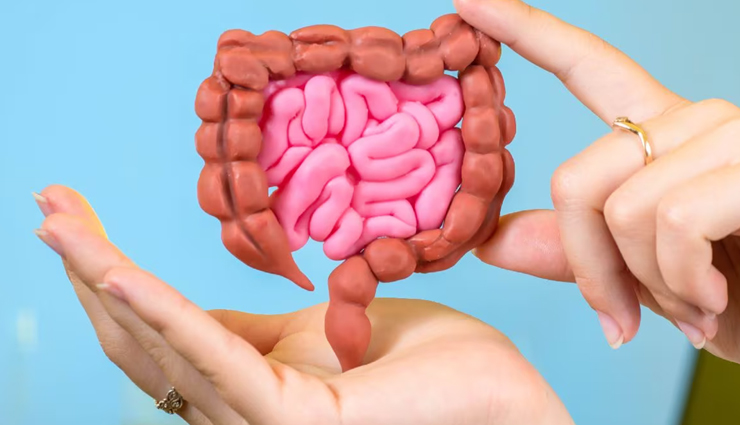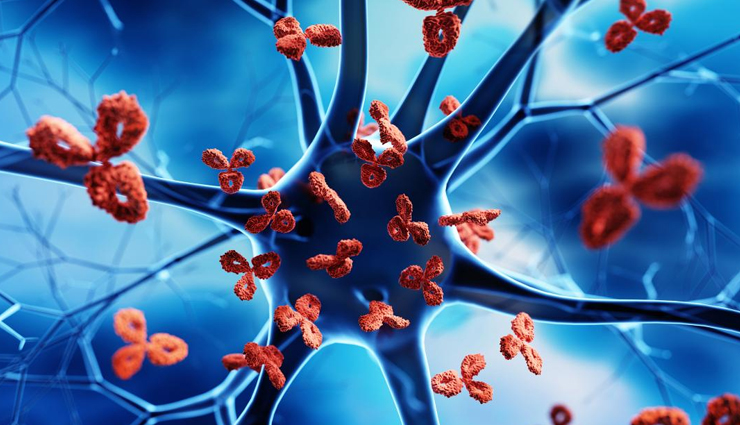- Home›
- Healthy Living›
- 8 Warning Signs Of Poor Gut Health You Shouldn't Ignore
8 Warning Signs Of Poor Gut Health You Shouldn't Ignore
By: Priyanka Maheshwari Fri, 28 Apr 2023 4:07:50

The gut, also known as the digestive system, is a complex network of organs and tissues that work together to break down food, absorb nutrients, and eliminate waste from the body. A healthy gut is essential for overall health and wellbeing, but many people may not realize when their gut health is compromised. Here are 8 signs of poor gut health that you should be aware of:

Digestive issues
Digestive issues are one of the most common signs of poor gut health. When the gut is not functioning properly, it can lead to a range of digestive problems such as bloating, gas, constipation, diarrhea, and stomach pain. These symptoms can be caused by a variety of factors, including an imbalance of gut bacteria, inflammation, and food sensitivities or allergies.
An imbalance of gut bacteria, also known as dysbiosis, can occur when there are too many harmful bacteria in the gut and not enough beneficial bacteria. This can lead to digestive issues as well as other health problems. Dysbiosis can be caused by a variety of factors, such as a poor diet, antibiotics, and stress.
Inflammation in the gut can also contribute to digestive issues. Chronic inflammation can damage the lining of the gut, making it more permeable and allowing harmful substances to enter the bloodstream. This condition is known as leaky gut syndrome and can lead to a range of health problems, including digestive issues.
Food sensitivities and allergies can also contribute to digestive issues. Certain foods, such as gluten, dairy, and soy, can be difficult for some people to digest, leading to symptoms such as bloating, gas, and diarrhea.

Food intolerances
Food intolerances can be a sign of poor gut health. Food intolerances occur when the body has difficulty digesting certain types of food, which can lead to a range of digestive symptoms such as bloating, gas, diarrhea, and stomach pain.
Poor gut health can contribute to food intolerances in a number of ways. For example, an imbalance of gut bacteria can lead to an overgrowth of harmful bacteria, which can cause inflammation and damage to the gut lining. This damage can lead to a condition called leaky gut syndrome, in which the lining of the gut becomes more permeable and allows harmful substances such as undigested food particles to enter the bloodstream. This can trigger an immune response, leading to symptoms of food intolerance.
Food sensitivities can also be caused by a lack of digestive enzymes, which are needed to break down food in the digestive system. If the body does not produce enough of these enzymes, or if they are not functioning properly, it can lead to difficulty digesting certain types of food.
Identifying and eliminating food intolerances can help to improve gut health and alleviate digestive symptoms. Keeping a food diary can help to identify trigger foods, and an elimination diet can be used to determine which foods are causing symptoms. In some cases, testing may be necessary to identify food intolerances.

Skin problems
Skin problems can be a sign of poor gut health. The health of the gut is closely linked to the health of the skin, and imbalances in the gut microbiome can contribute to a range of skin problems such as acne, eczema, rosacea, and psoriasis.
When the gut is not functioning properly, it can lead to an overgrowth of harmful bacteria and inflammation, which can contribute to skin problems. An unhealthy gut can also lead to nutrient deficiencies, which can affect skin health.
Research has shown that probiotics, which are beneficial bacteria that live in the gut, can help to improve skin health. Probiotics can help to balance the gut microbiome, reduce inflammation, and improve nutrient absorption, all of which can support healthy skin.

Frequent infections
Frequent infections can be a sign of poor gut health. The gut is home to trillions of microorganisms, collectively known as the gut microbiota, which play a crucial role in maintaining our overall health and wellbeing. A healthy gut microbiota is diverse and balanced, with beneficial bacteria that help protect against harmful pathogens.
However, poor diet, stress, medications, and other factors can disrupt the gut microbiota and lead to an overgrowth of harmful bacteria or yeast, such as Candida. This can weaken the immune system and increase the risk of infections.
Additionally, the gut plays a crucial role in immune function, with about 70% of our immune cells residing in the gut. If the gut is not functioning properly, it can compromise the immune system's ability to fight off infections.

Mood changes
Mood changes can be a sign of poor gut health. The gut-brain axis is a bidirectional communication system between the gut and the brain, and it plays a crucial role in regulating mood, behavior, and mental health.
The gut microbiota produces various neurotransmitters, including serotonin, dopamine, and gamma-aminobutyric acid (GABA), which play a critical role in regulating mood and behavior. Additionally, the gut microbiota influences the production of inflammatory cytokines, which can affect brain function and mood.
When the gut microbiota is imbalanced, with an overgrowth of harmful bacteria or yeast, it can lead to inflammation and the production of harmful metabolites, which can negatively impact mood and behavior. This is why people with inflammatory bowel disease (IBD) or irritable bowel syndrome (IBS) often experience symptoms such as anxiety, depression, and mood swings.
Furthermore, the gut can also be affected by stress and other emotional factors, which can disrupt the gut microbiota and lead to gastrointestinal symptoms, such as diarrhea or constipation, that can further affect mood and behavior.

Fatigue
Fatigue can be a sign of poor gut health. The gut plays a crucial role in absorbing nutrients from food, including vitamins and minerals that are essential for energy production. When the gut is not functioning properly, it can lead to nutrient deficiencies and malabsorption, which can contribute to fatigue and low energy levels.
The gut microbiota produces short-chain fatty acids (SCFAs), which are important for maintaining gut health and providing energy to the body. An imbalance in the gut microbiota, such as an overgrowth of harmful bacteria or yeast, can lead to a decrease in SCFA production, which can negatively affect energy levels.
Additionally, the gut is intimately connected to the immune system, and chronic inflammation in the gut can lead to systemic inflammation and contribute to fatigue and other symptoms.
Therefore, if you are experiencing fatigue, it may be worth considering the health of your gut and taking steps to improve it

Autoimmune conditions
The gut plays a crucial role in regulating the immune system, and an imbalance in the gut microbiota can contribute to autoimmune conditions.
The gut microbiota helps to educate the immune system and teach it to differentiate between harmful pathogens and harmless substances, such as food or our own tissues. When the gut microbiota is imbalanced, with an overgrowth of harmful bacteria or yeast, it can lead to inflammation and the production of antibodies against our own tissues, which can contribute to autoimmune conditions.
Furthermore, the gut is intimately connected to the immune system, with about 70% of our immune cells residing in the gut. Chronic inflammation in the gut can lead to systemic inflammation and contribute to autoimmune conditions.

Weight changes
The gut microbiota plays a crucial role in regulating metabolism and energy balance, and an imbalance in the gut microbiota can contribute to weight gain or weight loss.
An overgrowth of harmful bacteria in the gut can lead to an increase in calorie extraction from food, which can contribute to weight gain. Additionally, an imbalance in the gut microbiota can lead to inflammation and metabolic dysfunction, which can contribute to insulin resistance and weight gain.
On the other hand, a lack of diversity in the gut microbiota or overgrowth of harmful bacteria can lead to malabsorption of nutrients, which can contribute to weight loss.
Furthermore, the gut can be affected by stress and other emotional factors, which can disrupt the gut microbiota and contribute to weight changes.
Note: If you are experiencing any of these signs of poor gut health, it may be time to take steps to improve your gut health. Eating a healthy diet rich in fiber, probiotics, and prebiotics can help to promote the growth of beneficial gut bacteria. Reducing stress, getting enough sleep, and avoiding harmful substances such as alcohol and tobacco can also support gut health. In some cases, supplements or medication may be necessary to address gut issues. Consult with your healthcare provider for personalized advice on how to improve your gut health.





